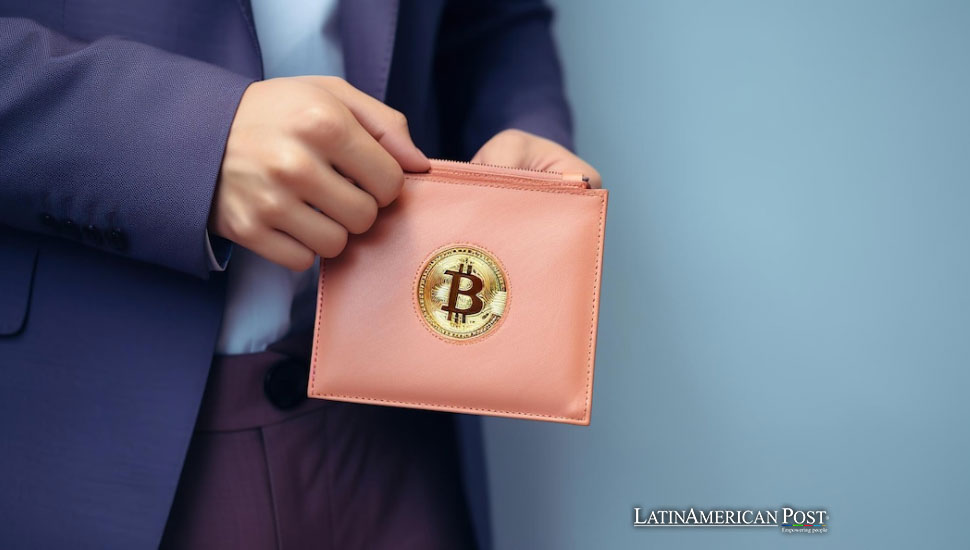Crypto In Latin America: How to Choose the Right Crypto Wallet

Bitcoin halving is just around the corner. For countless Latam crypto enthusiasts, this is a perfect opportunity to snap up some more Bitcoin before the supply gets even scarcer. While the spotlight shines upon the most prominent cryptocurrency, the halving event will likely affect other cryptos.
Observing historical market trends, the overall sentiment suggests heightened interest and price movements as investors seek new opportunities in the crypto market. The potential for significant gains and the allure of emerging technologies like blockchain often pique the curiosity of traditional investors exploring alternative assets for portfolio diversification.
In addition, media coverage and discussions surrounding the halving event often serve as catalysts for drawing attention from individuals who may not have previously considered investing in cryptocurrencies. Because of that, new investors typically seek an all-in-one crypto wallet, allowing them to conveniently manage their digital assets in one place.
In this article, we’ll explore crypto wallets and how to choose the best one that aligns with your financial goals, ensuring the safety and accessibility of your cryptocurrency investments.
Crypto in Latin America
Latin America is a global leader in crypto adoption, consistently accounting for a significant portion of global trading volume. This region receives 7.3% of the world’s crypto value.
Countries like Venezuela and Colombia see particularly high volumes, especially on centralized exchanges (CEXs). It is estimated that over 92% of the population in Venezuela is active on CEX platforms, while 74% of Columbians prefer centralized over decentralized exchanges.
Cryptocurrencies have found fertile ground in Latin America due to several factors:
- Unstable Economies – High inflation and currency devaluation in countries like Argentina and Venezuela make crypto a hedge against losing purchasing power. People can store their wealth in a more stable asset.
- Financial Inclusion – Traditional banking systems can be exclusionary, with unbanked populations prevalent in many areas. Crypto offers an alternative for sending and receiving payments, especially for remittances from abroad.
- Tech-Savvy Population – Latin America boasts a young and tech-adept population who are readily embracing new technologies like crypto.
For those looking to join the bandwagon, here’s what crypto wallets are and how to pick the best one.
Crypto Wallet 1O1
A crypto wallet is a digital tool that stores, manages, and interacts with cryptocurrencies. Unlike traditional wallets you use to hold physical cash or cards, crypto wallets store cryptographic keys, which are essentially the credentials required to access and manage one’s cryptocurrency holdings on a blockchain network.
At its core, a crypto wallet consists of two main components:
- Public address
- Private key
You can look at the public address as the destination for receiving funds. This is similar to a bank account number in the traditional financial system.
To be more specific, a public address is a string of alphanumeric characters generated from the user’s public key, which is derived from their private key—a secret code known only to the wallet owner.
These codes allow them to access and control the funds associated with their public address. Because of that, it is crucial to keep the private key secure, as anyone who possesses it can access the associated cryptocurrency funds.
Crypto Wallet Types
Crypto wallets come in various forms, with each offering different features, levels of security, and ease of use. The broader categorization includes two types: hot wallets and cold wallets.
Hot Wallets
Hot wallets are connected to the internet. They offer convenience and accessibility, making them suitable for investors seeking immediate access to their funds. Also, this type of storage is typically used for frequent transactions and other activities involving cryptocurrencies, such as staking and savings.
Hot wallets come in various forms, including:
- Desktop Wallets – Software applications installed on users’ desktop computers or laptops. They offer crypto holders full control over their private keys.
- Mobile Wallets – Android and iOS apps designed for smartphones and tablets, allowing crypto enthusiasts to manage their assets on the go. Mobile wallets are quite popular due to their convenience and ease of use.
- Web Wallets – Online platforms or services that enable users to access their cryptocurrency funds through their web browser. Web wallets are not only convenient but often more secure than their counterparts, considering that they often employ robust encryption protocols and multi-factor authentication to safeguard users’ private keys and sensitive information from unauthorized access and cyber threats.
Cold Wallets
Cold wallets, on the other hand, are offline storage devices or paper wallets. Ideally, they could provide users enhanced security by keeping the private keys completely offline, making them less susceptible to hacking attempts.
However, while seemingly offering enhanced security for storing cryptocurrency, cold wallets can be complex and risky for newcomers.
This type of storage requires more technical steps for setup and extra precautions to ensure the physical security of the wallet. This means you may lose all your holdings due to a loss, damage or theft.
Another reason cold storage is not ideal for beginners is the susceptibility to human error. In other words, less tech-savvy individuals may inadvertently make mistakes during backup or recovery procedures, which could lead to losing access to their crypto wealth.
When it comes to popular cold wallet categorization, a few types emerge as the most sought-after:
- Hardware wallets – Physical devices designed specifically for storing cryptocurrency private keys offline, resembling USB drives.
- Paper wallets – private keys printed on a physical piece of paper
- Air-Gapped computers – Computer devices that are entirely isolated from the internet and other networks.
How to Choose the Best Crypto Wallet?
Choosing the right crypto wallet should depend on several factors, including:
- Security preferences – Consider the level of security offered by different types of wallets, such as hot wallets, cold wallets, hardware wallets, or custodial services. Evaluate factors like encryption, multi-factor authentication, and the reputation of the wallet provider.
- Intended usage – Determine how frequently you’ll need to access your cryptocurrency and for what purposes. If you plan to make frequent transactions or use your cryptocurrency for daily purchases, a hot wallet (web-based) with convenient access may be preferable. For long-term storage or larger holdings, a cold wallet offering enhanced security may be more suitable.
- Technical expertise – Assess your comfort level with managing cryptocurrency wallets and handling private keys. Some wallets require more technical knowledge to set up and use securely, while others, like those offered by crypto exchanges, offer simpler interfaces and automated processes. Choose a wallet that aligns with your technical skills and ability to implement security measures effectively.
Finally, before you make a decision, do your due diligence and learn more about each solution. You can focus on user reviews and make a list of pros and cons. Once you find a solution that meets your criteria, you can proceed with confidence, knowing that you’ve thoroughly researched and considered all available options.
Remember to regularly review and update your security measures as the cryptocurrency landscape progresses. By taking the time to educate yourself and make an informed decision rather than an educated guess, you can safeguard your digital assets and navigate the world of cryptocurrency with greater peace of mind.
And, considering all of the above, there’s a strong chance you already have a Latam friend who’s navigating the world of crypto. So, why not check with your crypto-savvy amigos?




